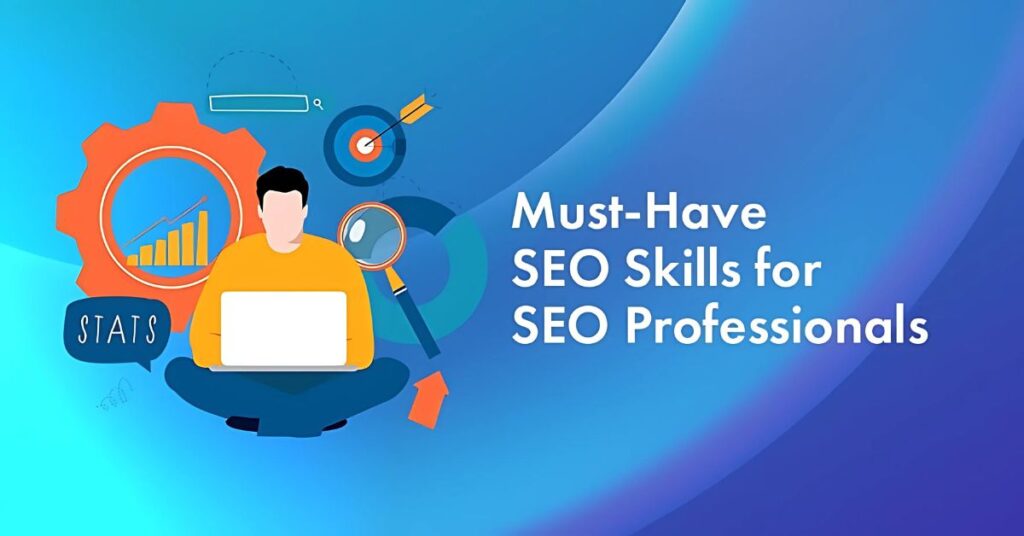In the digital age, where online direct exposure can make or damage a service, an SEO analyst role has become more essential than ever before. These specialists help companies increase online engine positions, enhance website websites, and drive sales. Yet, what is needed to be successful as an SEO specialist, and what should you understand if you’re considering this work training course? Whether you want the responsibilities or the prospective seo analyst salary, this overview will help you understand the fundamentals.
Table of Contents

Understanding the Role of an SEO Analyst
An SEO analyst is crucial in enhancing a site’s Internet search engine position, consequently increasing its natural traffic. Their essential obligations include:
- Assessing web pages to identify locations for improvement.
- Carrying out keyword research.
- Carrying out optimization techniques.
They collaborate closely with material developers, marketing experts, and web programmers to ensure that SEO efforts align with more comprehensive company objectives. In addition to on-page optimization, SEO analysts focus on off-page strategies like link-building and social media interaction to enhance the website’s authority. Their work involves continuous monitoring and tweaking to adjust to ever-changing internet search engine formulas.
Essential Skills Every SEO Analyst Should Have
To grow as an SEO expert, you should blend technological prowess with logical acumen and imaginative style. A firm grasp of search engine algorithms is fundamental; understanding how engines like Google rate pages will undoubtedly guide your optimization initiatives. Solid analytical skills are vital– you’ll need to interpret intricate data, track efficiency metrics, and make educated, data-driven decisions.
Creative thinking is just as vital. Crafting engaging content techniques and developing innovative ways to improve SEO performance calls for a creative attitude. Furthermore, superb communication skills allow you to work flawlessly with material designers, online marketers, and developers, guaranteeing that SEO approaches are correctly implemented and aligned with broader company objectives.
Essential coding expertise can also be advantageous. Familiarity with HTML, CSS, and JavaScript enables you to make necessary on-page changes without entirely relying on developers. Lastly, a proactive mindset toward constant learning is vital, given the ever-evolving nature of SEO.
Tools and Software SEO Analysts Use
SEO analysts rely on various tools and software applications to make their work more efficient. Google Analytics and Google Search Console are vital for tracking website performance and gathering critical insights. These devices help you recognize how individuals engage with your website and identify locations for renovation.
Platforms like SEMrush and Ahrefs are excellent keyword study and competitive analysis choices. They offer extensive information on keyword rankings, backlinks, and rival approaches. Tools like Screaming Frog and Moz streamline technical SEO audits, helping determine problems such as busted links, duplicate material, and crawl mistakes.
Content optimization devices like Yoast SEO for WordPress help you adjust your material to meet SEO’s ideal methods. Social network administration platforms like Hootsuite and Buffer can be invaluable for off-page SEO, helping you correctly schedule messages and engage with your audience.
By leveraging these devices, SEO experts can gather data-driven understandings, simplify operations, and execute methods that drive measurable outcomes.
How to Conduct Effective Keyword Research
Efficient keyword study starts with comprehending your target audience and what they are searching for. Begin by brainstorming a checklist of seed keyword phrases that pertain to your business or website. These basic terms explain your items, services, or market.
Next, use keyword study devices like Google Keyword Planner, Ubersuggest, or Ahrefs to broaden these seed search phrases. These devices provide insights into search quantity, competition, and relevant search phrases. Focus on finding a well-balanced mix of short-tail keywords (which are extra essential and have more significant search volumes) and long-tail key phrases (which are much more specific and often have reduced competitors).
It’s crucial to consider user intent when selecting your key phrases. Ask yourself what someone is likely trying to accomplish with their search question. Are they searching for information, or are they prepared to purchase? Straightening your keywords with user intent ensures you attract visitors more likely to engage with your content and transform.


On-Page and Off-Page Techniques
On-page optimization enhances elements within your internet site to improve search engine settings. Key aspects include enhancing title tags, meta summaries, and headers with targeted key phrases. Furthermore, enhancing website rate and making sure mobile responsiveness is essential. Structuring your web content with clear headings, bullet factors, and pertinent photos can improve customer experience, making your website more appealing to visitors and search engines.
Off-page optimization, in contrast, focuses on increasing your website’s authority and integrity via external methods. Link-building is core, including acquiring premium backlinks from respectable websites. Social network involvement likewise plays an essential role; proactively getting involved on platforms like Twitter, LinkedIn, and Facebook can drive traffic and improve your website’s exposure. Influencer outreach is an additional powerful off-page method, aiding you in taking advantage of established personalities to broaden your reach and develop trust.
Both on-page and off-page approaches are integral to a successful SEO project. They interact to develop a well-balanced, robust online presence. Concentrating on these strategies guarantees your site is maximized for online search engines and offers customers a valuable and appealing experience.
Measuring and Analyzing SEO Performance
Comprehending the performance of your SEO strategies calls for persistent measurement and analysis. Secret performance indicators (KPIs) such as natural web traffic, bounce rate, conversion price, and keyword positions offer essential insights into exactly how well your website is performing. Utilizing tools like Google Analytics, you can establish detailed goals and track progression over time, recognizing what’s functioning and what needs improvement.
Google Search Console is another vital tool for monitoring your site’s presence and diagnosing problems impacting efficiency. By assessing your website’s search performance frequently, you can gain insight into how your keyword phrases rank and how users connect with your web content.
Remember the significance of individual interaction metrics. High bounce prices or low dwell times indicate your content isn’t meeting customer expectations. By closely checking these metrics, you can make data-driven adjustments to improve user experience and search positions.
Including A/B screening can additionally provide essential data on what adjustments have the most significant impact. By constantly refining your strategies based on performance data, you can guarantee that your SEO initiatives are reliable and effective, eventually driving far better results for your website.
Staying Updated with SEO Trends and Best Practices
Keeping up to date with the most recent website design enhancement patterns and best practices is fundamental to progress in this consistently evolving field. Web indexes update their calculations as often as possible, so search engine optimization specialists should remain informed. Follow legitimate sources like Moz, Web search tool Diary, and Google’s Website admin Blog, and exploit online classes and online courses for inside and out learning. Consider sharing your thoughts when participating in web-based networks, such as Reddit and Web optimization discussions. Organizing at industry occasions offers new viewpoints while buying into pamphlets and webcasts keeps you refreshed without overpowering your timetable. Consistently investigating contextual analyses and whitepapers refines your methodologies for the most extreme effect.
Career Growth and Opportunities for SEO Analysts
The SEO field provides a vivid job course with sufficient opportunities for growth and advancement. As an SEO expert, you can specialize in numerous locations, such as technological SEO, web content methods, or data analytics, allowing you to customize your profession to your stamina and passions.
Several specialists start as junior analysts and gradually progress to senior functions, taking on more complicated jobs and higher responsibilities. With experience, you can progress to placements like SEO manager, looking after a group and creating thorough SEO techniques for more prominent campaigns. Some SEO analysts change into more comprehensive digital marketing functions, leveraging their competence to drive general advertising and marketing initiatives.
Freelancing and working as a consultant are additionally viable choices. Experienced SEO experts commonly discover success working independently, offering their specialized skills to a select group of customers. This course provides the flexibility to select jobs and establish your rates, making it an appealing option for those looking for even more control over their careers.
Networking and constant knowledge are vital to remaining affordable. Involve yourself in market areas, participate in meetings, and attend webinars to increase your specialist network and keep your skills sharp. The capability to adjust and develop with the industry will ensure continual professional growth and open doors to attractive new opportunities.

Conclusion
In conclusion, becoming an SEO Analyst is a fulfilling occupation for those who are detail-oriented and enthusiastic about data-driven advertising. With many SEO analyst jobs available, it’s necessary to develop solid analytical abilities and remain updated with SEO patterns to flourish in this ever-evolving area. By mastering the vital facets of SEO, you can play a critical role in improving site performance and driving organic development.
